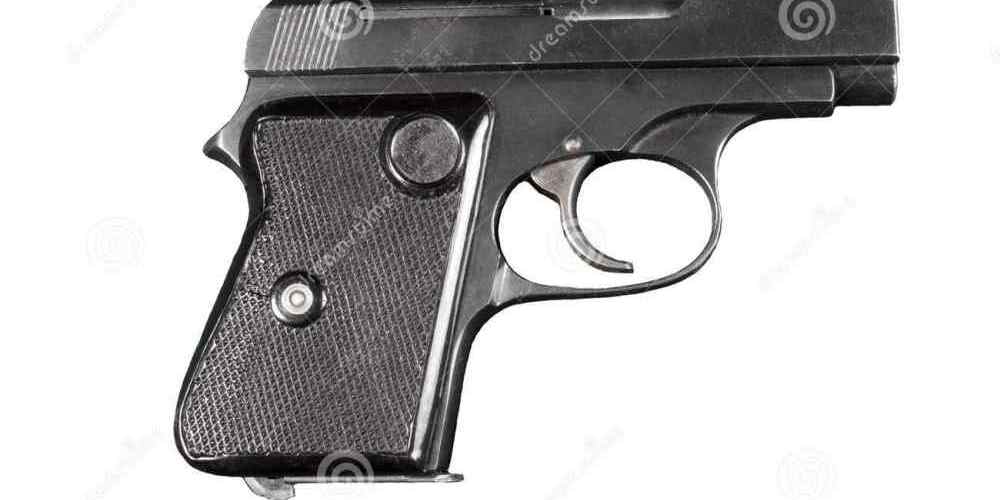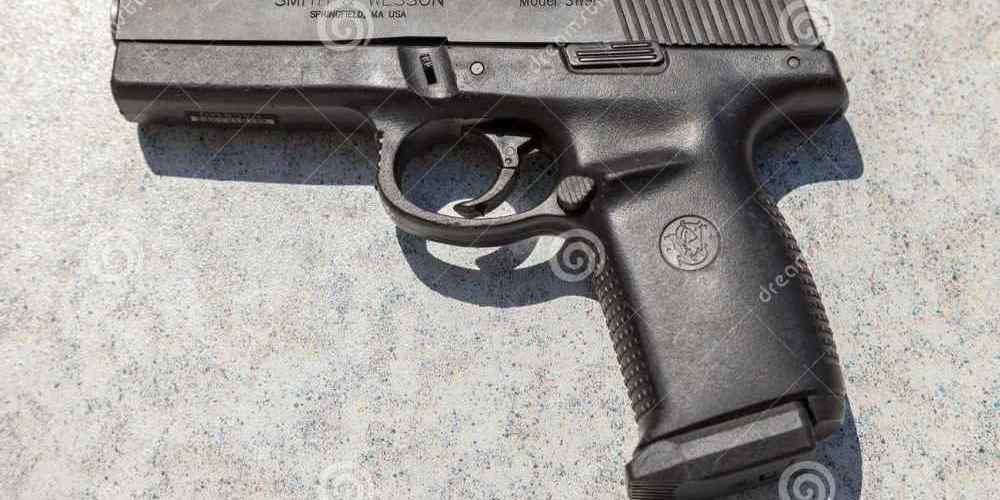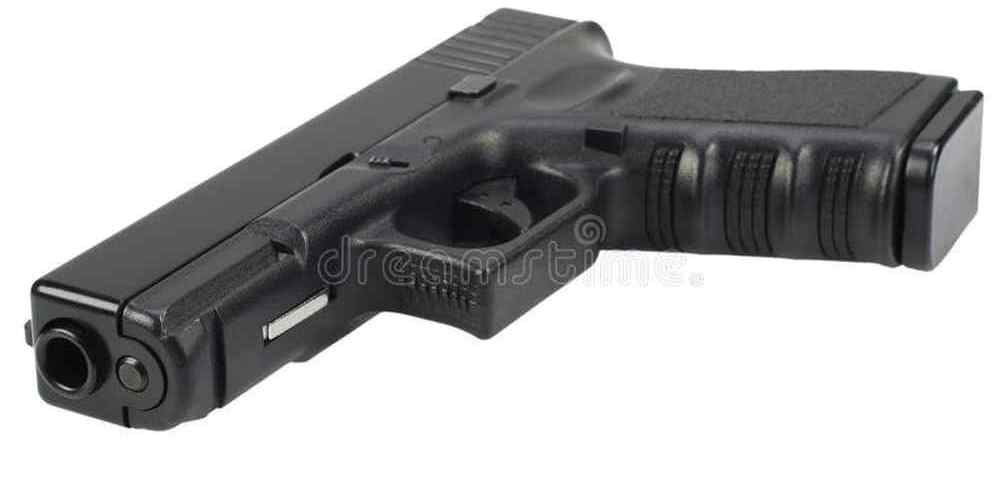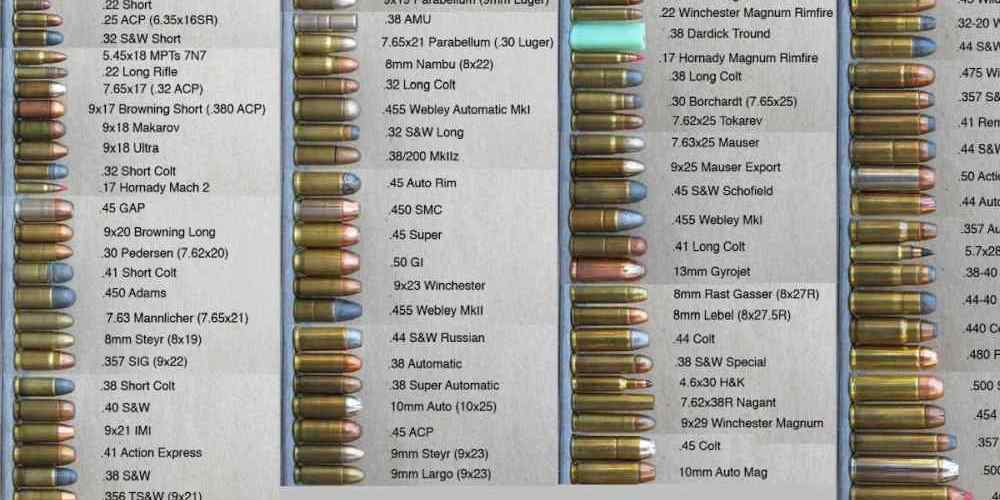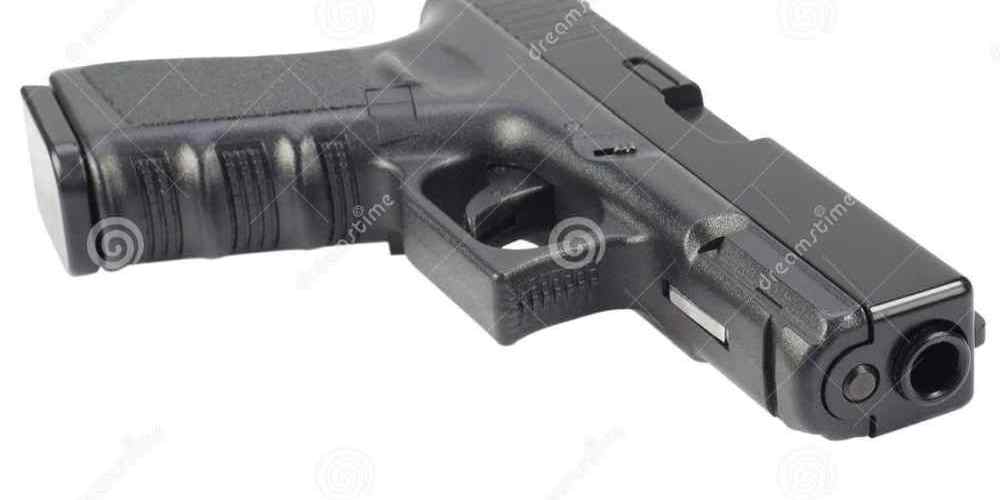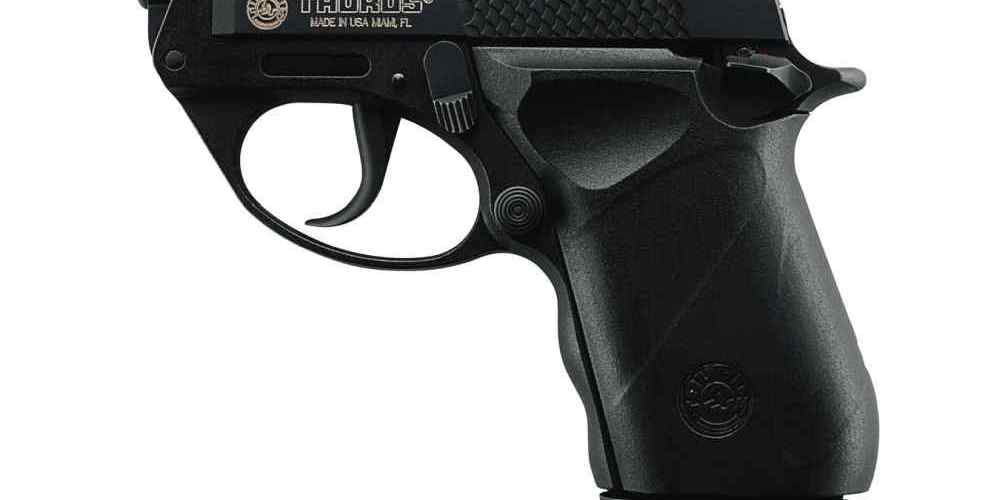“Choosing the right firepower for every situation.”
Pros and Cons of Using Handguns for Self-Defense
When it comes to self-defense, choosing the right firearm can make all the difference. Handguns and rifles are two popular options for personal protection, each with its own set of pros and cons. In this article, we will explore the differences between semi-auto ammunition used in handguns and rifles, and discuss the pros and cons of using handguns for self-defense.
Handguns are compact and easy to carry, making them a popular choice for self-defense. They are also versatile, with a wide range of calibers and ammunition types available. Semi-auto handguns, in particular, are popular for their ease of use and quick reloading capabilities. These firearms use a magazine to hold multiple rounds of ammunition, allowing the shooter to fire multiple shots without needing to manually reload after each shot.
One of the main advantages of using a handgun for self-defense is its portability. Handguns are small enough to be carried on your person or stored in a bedside table, making them easily accessible in case of an emergency. This can be especially important in situations where you may need to defend yourself quickly, such as a home invasion or robbery.
Another advantage of using a handgun for self-defense is its ease of use. Semi-auto handguns are relatively simple to operate, with minimal training required to become proficient. This can be a major advantage for individuals who may not have the time or resources to undergo extensive firearms training.
However, there are also some drawbacks to using a handgun for self-defense. One of the main disadvantages is the limited range and stopping power of most handgun calibers. While handguns are effective at close range, they may not be as effective at longer distances or against heavily armored targets.
Additionally, handguns can be more difficult to shoot accurately under stress. In high-pressure situations, such as a self-defense scenario, it can be challenging to maintain proper aim and control over a handgun. This can lead to missed shots or unintended collateral damage.
In conclusion, handguns are a popular choice for self-defense due to their portability, ease of use, and quick reloading capabilities. However, they may have limitations in terms of range and stopping power, as well as accuracy under stress. It is important to weigh these pros and cons carefully when choosing a firearm for self-defense, and to seek proper training and practice to ensure you are prepared to use your handgun effectively in a crisis.
Advantages of Rifles for Long-Range Shooting
When it comes to choosing between a handgun and a rifle for long-range shooting, there are several factors to consider. One of the key differences between the two is the type of ammunition they use. Rifles typically use larger, more powerful cartridges compared to handguns, which allows them to achieve greater accuracy and range.
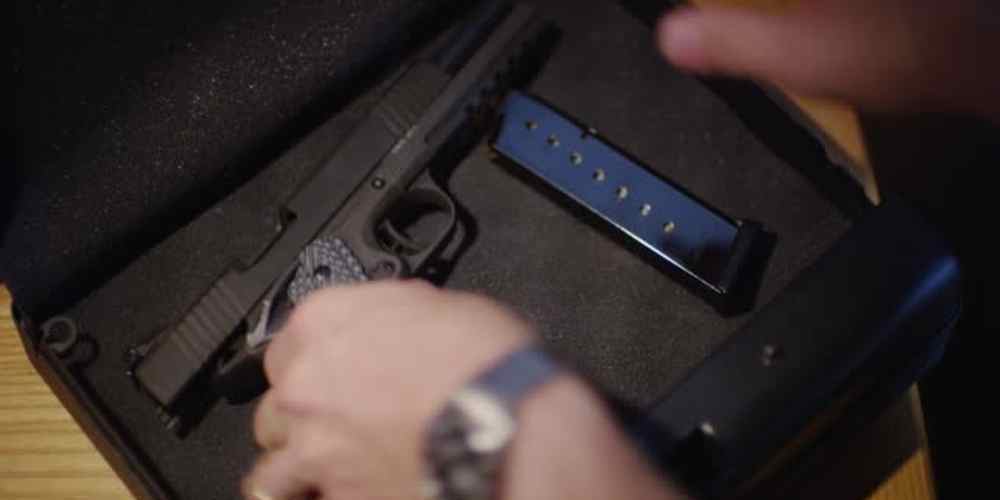
One advantage of rifles for long-range shooting is their ability to deliver higher muzzle velocity. This means that the bullet travels faster out of the barrel, which can result in better accuracy and less bullet drop over long distances. The higher muzzle velocity of rifles also allows them to maintain their energy and velocity over longer ranges, making them more effective for hitting targets at extended distances.
Another advantage of rifles for long-range shooting is their longer barrel length. The longer barrel of a rifle provides a longer sight radius, which can help improve accuracy when shooting at distant targets. Additionally, the longer barrel allows for more complete combustion of the gunpowder, which can result in higher muzzle velocity and better overall performance.
Rifles also typically have a longer effective range compared to handguns. The combination of higher muzzle velocity, longer barrel length, and larger cartridges allows rifles to reach out to greater distances with greater accuracy. This makes rifles a better choice for shooting targets at long ranges, whether it be for hunting, competitive shooting, or tactical applications.
In addition to their superior long-range capabilities, rifles also offer greater versatility when it comes to ammunition selection. Rifles can be chambered in a wide variety of calibers, ranging from small and fast cartridges like the .223 Remington to large and powerful cartridges like the .50 BMG. This allows shooters to choose the best cartridge for their specific needs, whether it be for target shooting, hunting, or self-defense.
One important consideration when choosing a rifle for long-range shooting is the type of action it uses. Bolt-action rifles are known for their accuracy and reliability, making them a popular choice for precision shooting. Semi-automatic rifles, on the other hand, offer faster follow-up shots and can be more convenient for shooting multiple targets quickly.
Overall, rifles have several advantages over handguns when it comes to long-range shooting. Their higher muzzle velocity, longer barrel length, and larger cartridges all contribute to their superior performance at extended distances. Additionally, rifles offer greater versatility in terms of ammunition selection and can be tailored to suit a wide range of shooting applications.
In conclusion, if you are looking to shoot targets at long ranges, a rifle is likely the better choice compared to a handgun. The superior long-range capabilities, versatility in ammunition selection, and overall performance of rifles make them the preferred option for precision shooting. Whether you are a hunter, competitive shooter, or tactical operator, a rifle is a valuable tool for hitting targets at extended distances with accuracy and precision.
Comparison of Stopping Power Between Handguns and Rifles
When it comes to self-defense or hunting, choosing the right firearm can make all the difference. One of the key factors to consider is the type of ammunition the firearm uses. In this article, we will compare the stopping power of handguns and rifles, specifically focusing on the differences between semi-automatic ammunition used in both types of firearms.
Handguns are popular choices for self-defense due to their compact size and ease of concealment. They are typically chambered in smaller calibers such as 9mm, .40 S&W, or .45 ACP. These calibers are known for their stopping power, with the .45 ACP being particularly renowned for its ability to incapacitate a threat with a single shot. However, handguns are limited in their effective range and accuracy compared to rifles.
Rifles, on the other hand, are known for their longer barrels and higher muzzle velocities, which result in greater accuracy and stopping power at longer distances. Rifles are typically chambered in larger calibers such as .223 Remington, .308 Winchester, or .30-06 Springfield. These calibers are capable of delivering more energy to the target, making them more effective at stopping threats or taking down game.
One of the key differences between handguns and rifles is the type of ammunition they use. Handguns are typically semi-automatic, meaning they can fire one round with each pull of the trigger. This allows for quick follow-up shots in a self-defense situation. However, the smaller size of handgun ammunition means it delivers less energy to the target compared to rifle ammunition.
Rifles, on the other hand, can be semi-automatic or bolt-action, with semi-automatic rifles being more popular due to their faster rate of fire. The larger size of rifle ammunition allows for greater energy transfer upon impact, resulting in more stopping power. This makes rifles a preferred choice for hunting larger game or engaging threats at longer distances.
In terms of self-defense, handguns are often preferred for their ease of carry and quick access in close-quarters situations. However, rifles offer greater stopping power and accuracy, making them a better choice for engaging threats at longer distances. Ultimately, the choice between a handgun and a rifle comes down to personal preference and the specific needs of the user.
When comparing the stopping power of handguns and rifles, it is important to consider the type of ammunition being used. Handgun ammunition is typically smaller in size and delivers less energy to the target compared to rifle ammunition. Rifles, on the other hand, are capable of delivering more energy due to their larger caliber ammunition.
In conclusion, both handguns and rifles have their own strengths and weaknesses when it comes to stopping power. Handguns are compact and easy to carry, making them ideal for self-defense in close-quarters situations. Rifles offer greater stopping power and accuracy at longer distances, making them a preferred choice for hunting or engaging threats from a distance. Ultimately, the choice between a handgun and a rifle comes down to personal preference and the specific needs of the user.
Differences in Accuracy Between Semi-Auto Handguns and Rifles
When it comes to firearms, there are many factors to consider when choosing between a handgun and a rifle. One of the key differences between the two is the type of ammunition they use. In this article, we will explore the differences in accuracy between semi-auto handguns and rifles, specifically focusing on the impact of the type of ammunition they use.
Semi-auto handguns are typically chambered in smaller calibers, such as 9mm or .45 ACP, while rifles are often chambered in larger calibers, such as .223 or .308. The size of the caliber can have a significant impact on the accuracy of the firearm. Generally speaking, rifles are more accurate than handguns due to their longer barrels and higher muzzle velocities.
The longer barrel of a rifle allows for greater accuracy by providing a longer sight radius and more stability when aiming. Additionally, the higher muzzle velocity of rifle ammunition means that the bullet travels faster and maintains its trajectory better over longer distances. This can result in tighter groupings and more consistent shot placement.
On the other hand, semi-auto handguns are typically designed for close to mid-range engagements, where accuracy is less critical. While handguns can still be accurate within their effective range, they are generally not as precise as rifles due to their shorter barrels and lower muzzle velocities.
Another factor that can impact the accuracy of a firearm is the type of ammunition it uses. Handguns and rifles often use different types of ammunition, with rifles typically using larger, more powerful cartridges. The increased power of rifle ammunition can result in greater accuracy and stopping power, making rifles a preferred choice for long-range shooting and hunting.
In contrast, handgun ammunition is generally less powerful and has a shorter effective range. While handguns can still be accurate within their intended range, they are not as effective at longer distances compared to rifles. This is why rifles are often the preferred choice for precision shooting and hunting applications.
In conclusion, the differences in accuracy between semi-auto handguns and rifles can be attributed to a combination of factors, including barrel length, muzzle velocity, and the type of ammunition used. Rifles are generally more accurate than handguns due to their longer barrels and higher muzzle velocities, making them a preferred choice for long-range shooting and hunting. Handguns, on the other hand, are designed for close to mid-range engagements and are generally less precise than rifles. Ultimately, the choice between a handgun and a rifle will depend on the intended use and the shooter’s preferences.
Considerations for Choosing Between Handguns and Rifles for Home Defense
When it comes to choosing a firearm for home defense, there are many factors to consider. One of the most important decisions you will need to make is whether to go with a handgun or a rifle. Both types of firearms have their own advantages and disadvantages, so it’s important to understand the differences between them before making your decision.
One of the key differences between handguns and rifles is the type of ammunition they use. Handguns typically use semi-automatic ammunition, while rifles can use either semi-automatic or fully automatic ammunition. Semi-automatic ammunition is designed to fire one round each time the trigger is pulled, making it a popular choice for self-defense situations.
Semi-automatic ammunition is available in a wide range of calibers, from small .22 rounds to larger .45 rounds. The size of the caliber you choose will depend on your personal preferences and the level of stopping power you are looking for. Larger calibers generally have more stopping power, but they also tend to have more recoil, which can make them more difficult to control.
In addition to caliber, you will also need to consider the type of bullet you want to use. Hollow point bullets are designed to expand upon impact, creating a larger wound channel and increasing the likelihood of stopping an attacker. Full metal jacket bullets, on the other hand, are designed to penetrate through barriers and are less likely to expand upon impact.
When choosing between a handgun and a rifle for home defense, it’s important to consider the size and layout of your home. Handguns are generally more compact and easier to maneuver in tight spaces, making them a good choice for home defense situations. Rifles, on the other hand, are longer and can be more difficult to maneuver in close quarters.
Another factor to consider when choosing between a handgun and a rifle is the level of training and experience you have with firearms. Handguns are generally easier to shoot and require less training to use effectively. Rifles, on the other hand, can be more difficult to shoot accurately and may require more training to use effectively.
Ultimately, the decision between a handgun and a rifle for home defense will come down to personal preference and the specific needs of your situation. Both types of firearms have their own advantages and disadvantages, so it’s important to carefully consider your options before making a decision.
In conclusion, when choosing between a handgun and a rifle for home defense, it’s important to consider the type of ammunition each firearm uses. Semi-automatic ammunition is a popular choice for handguns, while rifles can use either semi-automatic or fully automatic ammunition. Consider factors such as caliber, bullet type, and your level of training and experience when making your decision. Ultimately, the best firearm for home defense will be the one that you are most comfortable and proficient with.




